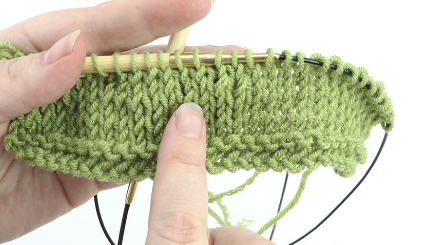Emotional eating: How to fight it?
The emotional eating is not a real hunger, but rather a habit, a necessity or a pulse caused generally caused by a nutritional imbalance, excessive stress or an untreated one emotional state.
It is not always easy to control it, and for this it is necessary, first of all, to choose the right foods to avoid blood sugar spikes in blood and stress in the body, the main causes of loss in power level control.
Let’s get started!
The power in emotional eating
The first advice I give you: plan your power and divide into 5 meals diaries.
If you are following a weight loss diet, providing for the complete elimination, or nearly so, of the carbohydrates (sugars in general), know that you are asking the extra effort the body to perform all its functions and then you yourself are creating a kind stress within the body; this results in moodiness, irritability, fatigue, depression, emotional eating.
Rather choose carefully the carbohydrates in your diet, respecting their glycemic index: those with high glycemic index cause a sudden increase in blood sugar and an intervention by insulin, leaving us with a new feeling of hunger. Those with low glycemic index instead, are slowly absorbed within the body, giving a more constant feeling of satiety and energy over time.
If you were a real addition to sugar … that we hit the main cause of the problem.
Sugar unfortunately addictive and really is not bringing any real benefit to your diet, rather inflames and gives only a momentary feeling of pleasure. You can decrease the amount of sweets in your diet, as it does not offer a balance to your body and your mind and create later fatigue, confusion, anxiety.
If you really want to put a stop to emotional eating collapse: white sugar, white flour biscuits, candies, sweets of all kinds, ice cream, chocolate with sugar, jam made with sugar, white bread and derivatives, slices of pizza, white pasta, yoghurt with sugar, bars with sugar, alcoholic drinks or sweetened fruit juices with sugar, coffee or tea with sugar.
Some useful tips…
– Drink water, teas or tea when you gets hungry.
– Eat of oats, useful to combat all kinds of anxiety. You can find it in flakes, bran, crackers, oatmeal blown.
– Eat a handful of dried fruit or seeds (sunflower, pumpkin, chia, sesame, …); you can also find them as creams ready to spread, but do not go overboard with the amount!
– And of course, remember the importance of rest well the night and to play a sport or daily movement.
You may also like to read another article on AnxietyReduction: Psychological stress and vitamin complex
Garcinia cambogia for the nervous hunger
The Garcinia Cambodia is a plant, of which the fruit is used, which helps to raise levels of serotonin in the body, thereby improving the mood, and therefore any kind of anxiety or nervousness, and regulating appetite.
Perfect in case of nervous hunger since it avoids that the excess of sugars is converted into storable fat in the body and because it sends a message of satiety to the brain.
It also increases the energy level of the organism and helps to reduce the production of cholesterol “bad” LDL.
I personally recommend the Garcinia Cambogia the Sakai line (2 tablets, half an hour before the meal), available online by clicking the image you will find here on the side.
Not recommended in case of type II diabetes, pregnancy and lactation. Consult your doctor in case of chronic disease and constant intake of drugs.
Stress and emotional eating
We start talking about what really stress and how you can do to improve or control its effects!
First of all know that stress has three phases:
- At the beginning may cause a change in digestion resulting in constipation, gas, halitosis, hemorrhoids, headaches, etc..
- In a second step, and it is here where you are you, drives us to search for something that we relax; It can be a cigarette, a drink, the food!
- The third phase is already more worrying because it may lead to a change in personality, mood, depression, lack of concentration, etc.
Test: Emotions that cause emotional eating
In many cases during my work, I invite the person to become a “self-test” and answer truthfully to itself . Sometimes the problem is so hidden within us, that we are no longer able to see him.
So take a pen and paper and answer in depth to these simple questions, in a quiet and private moment of your day.
- Your nervous hunger feeling that comes from a stress or mood?
- It is caused by problems related to a personal dissatisfaction or frustration, the family, at work, at a trauma not yet passed or something? Think good, it is very important that you be able to locate the heart of the problem.
- Create a mental picture of yourself, how you see yourself? Overall, see image positive or negative?
- If it is negative, what do not you like about yourself to the point to create you a problem?
- When you are assailed emotional eating, you’re alone / or? If so, why?
- How long have you?
- Do you remember when you started?
This little test is closely related to a discipline of alternative medicine that seeks the origin of the disease in the emotional body. That part of the concept that any problem linked to emotions, if not resolved or suppressed, is projected directly on the physical body, generating a disease, an indisposition, and in this case the nervous hunger.
According to this theory in fact, emotional eating can be related to…
– A confusion on their person, on their skills, the way to go,
– A insecurity on belonging to a group (as in the case of the family or of a work environment),
– A inability to live well the present,
– A lack of contact with oneself,
– A loss of confidence in themselves,
– A fear to be “attacked” by someone else (the husband, the employer, the mother, etc.).
Have you found any connection between this vision and what you have responded?
If you recognize yourself in any of these situations, my advice is to avoid dealing with the problem on their own and talk with someone who can understand you and accompany you (husband, girlfriend, friend, mother, father, psychologist …). Often it is talking that you make the first steps towards the solution.
He works hard on yourself / a, on what you want and protect your person, special and worthy of being treated with respect from you and from others.
Visit the ultimate guide to forget your depression.














